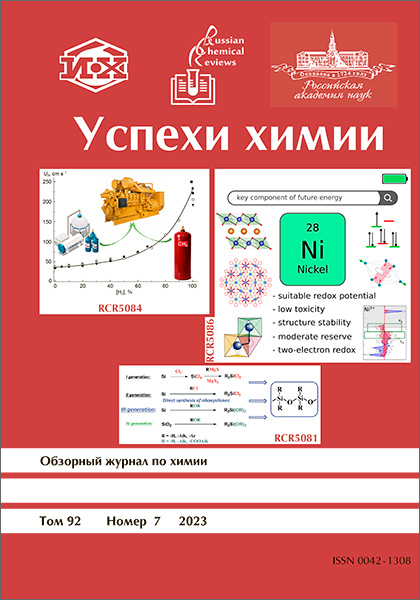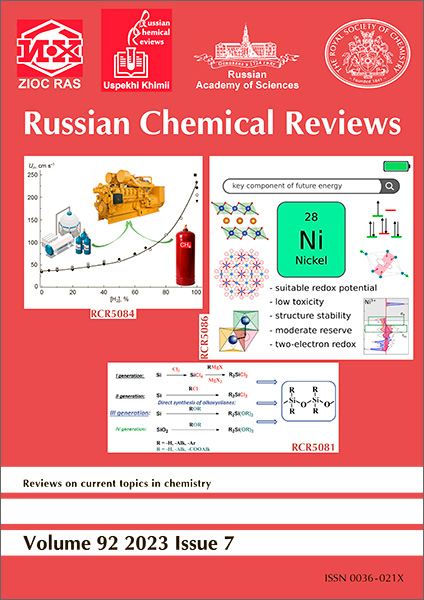|
This article is cited in 5 scientific papers (total in 5 papers)
Nickel as a key element in the future energy
A. A. Savina, A. O. Boev, E. D. Orlova, A. V. Morozov, A. M. Abakumov
Skolkovo Institute of Science and Technology, Moscow, Russian Federation

Abstract:
The review discusses the complex properties of nickel and its role as a critical element for ensuring a confident transition to a new technological paradigm from fossil fuels in favor of using advanced electrochemical storage and energy conversion systems. The main classes of nickel-containing materials of the positive electrode (cathode) for metal-ion batteries are discussed, the place of nickel among other 3d-metals used in the industry of electrochemical energy storage is determined. The main methods and approaches for the synthesis of state-of-the-art and next generation cathode materials based on layered Ni-containing oxides are presented. The crystal and electronic structures of these materials, including their evolution in the process of (de)intercalation of alkali metal cations, are considered in the context of their electrochemical properties. The most acute problems facing modern materials science on the way to
commercialization and industrial production of new generation highenergy density cathode materials are determined. At the end of the review, promising directions for the further development of nickelcontaining
cathode materials are outlined.
The bibliography includes 252 references.
Keywords:
nickel, 3d-metals, metal-ion battery, cathode, nickel-rich layered oxides, crystal field theory, density functional theory, Jahn-Teller effect, inductive effect, phase transitions, cationic migration, co-precipitation.
Received: 24.04.2023
Citation:
A. A. Savina, A. O. Boev, E. D. Orlova, A. V. Morozov, A. M. Abakumov, “Nickel as a key element in the future energy”, Usp. Khim., 92:7 (2023), RCR5086; Russian Chem. Reviews, 92:7 (2023), RCR5086
Linking options:
https://www.mathnet.ru/eng/rcr4431https://doi.org/10.59761/RCR5086
|


| Statistics & downloads: |
| Abstract page: | 69 | | References: | 2 |
|






 Contact us:
Contact us: Terms of Use
Terms of Use
 Registration to the website
Registration to the website Logotypes
Logotypes








